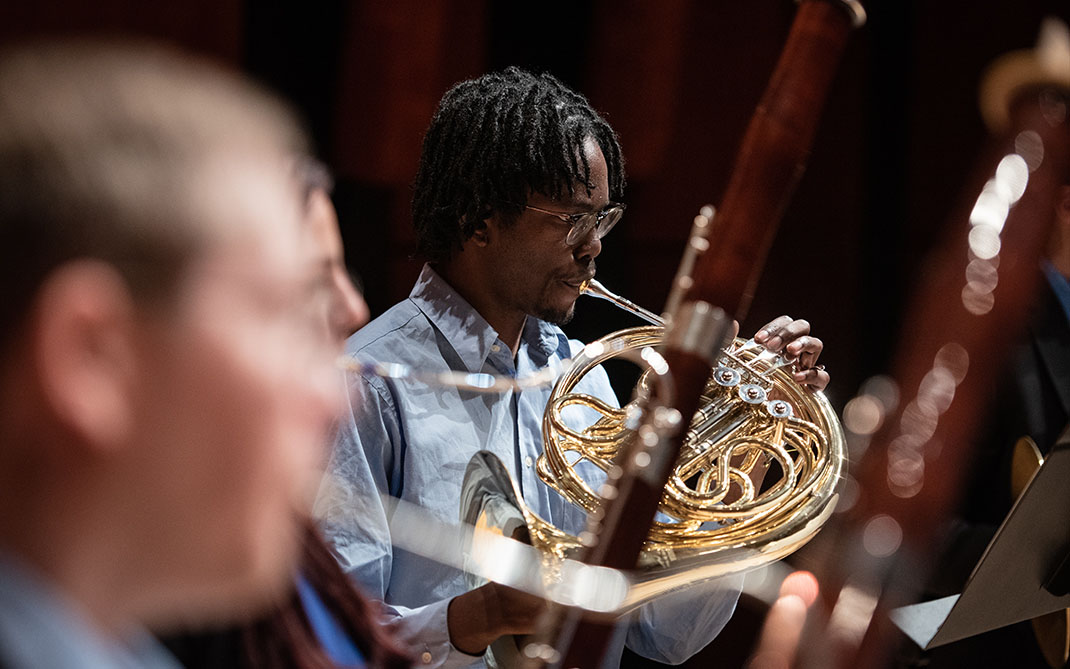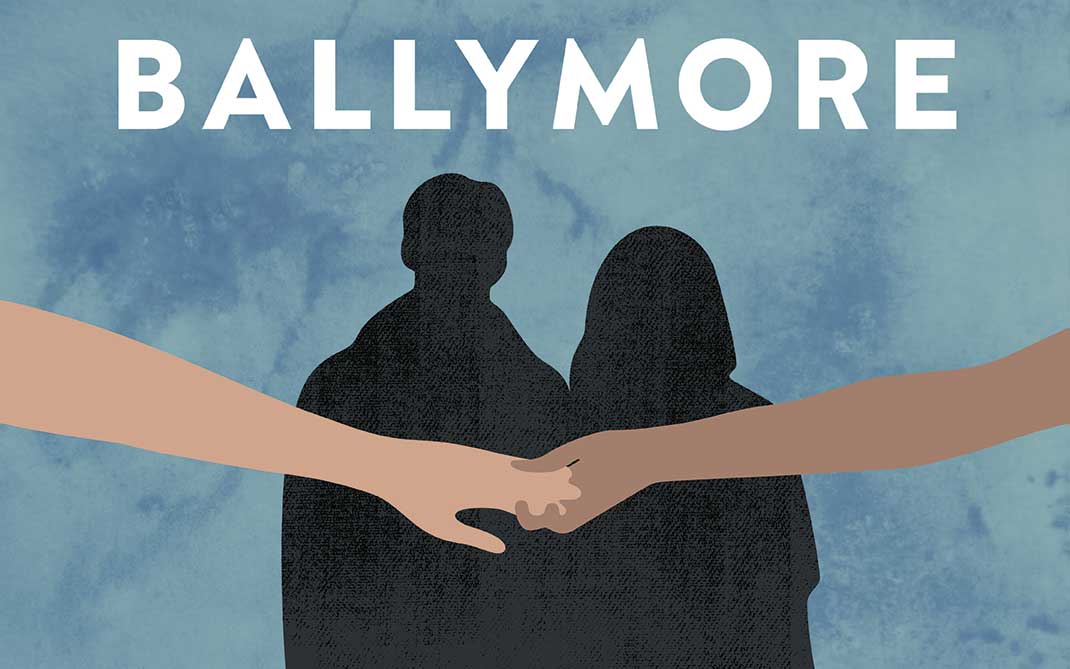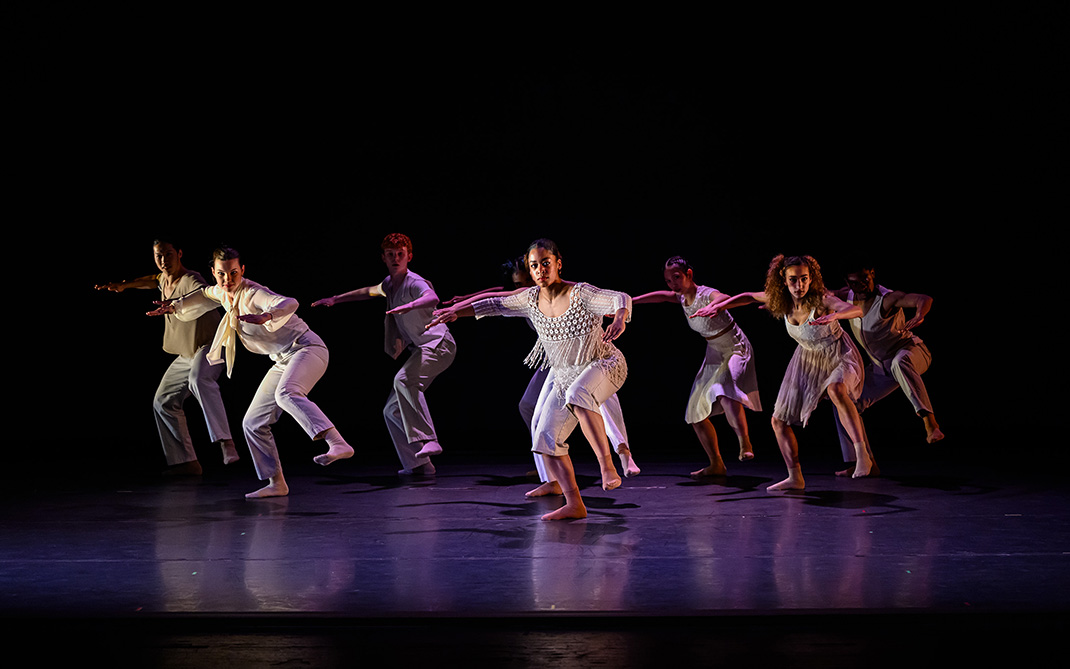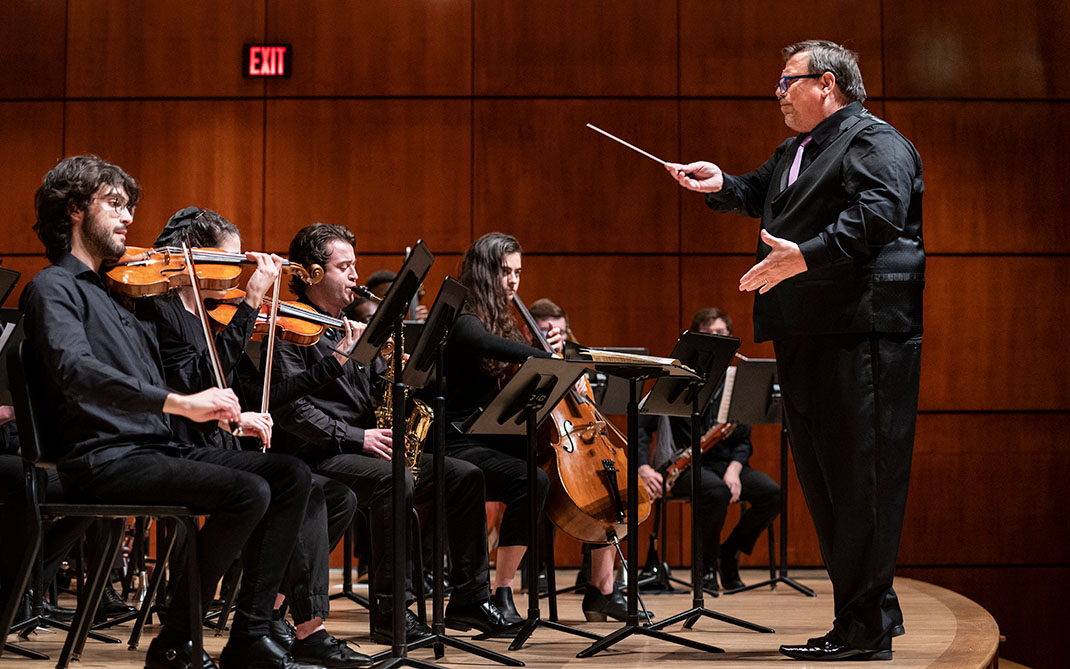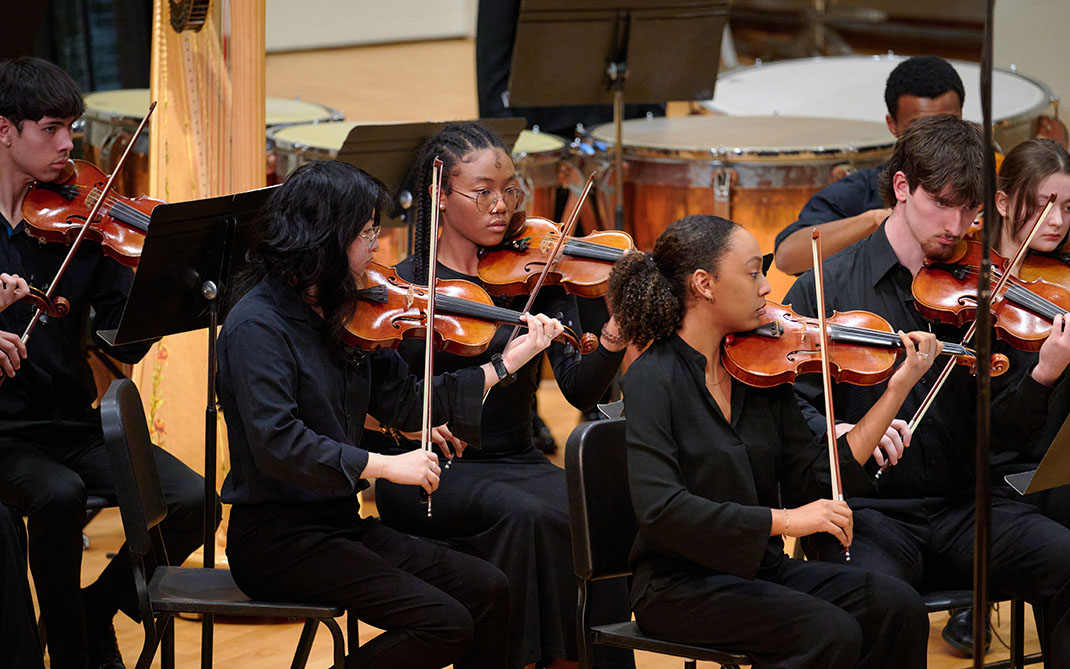Minors
Minors
The minor degree program at UNCSA is intended to offer students the opportunity to delve more deeply into a subject of interest to them that is in addition to their major field of study. The minor degree program is something that students elect to apply for, but which is purely optional. Students are eligible to apply for the minor program after successful completion of their first year of study. The current academic minor degrees being offered are a Minor in Arts Entrepreneurship, a Minor in German Studies, a Minor in Creative Writing, a Minor in Multiple Woodwinds, and a Minor in Improvised Music and Jazz.
Minor in Arts Entrepreneurship
Program Description
The Minor in Arts Entrepreneurship has been designed to provide students the opportunity to explore and gain experience in a variety of areas related to the business aspects of the arts. UNCSA recognizes that many students graduating today are interested in gaining experience in a broad range of skills that will serve to supplement their academic training and artistic development. These skills include areas such as managing one’s personal finances, understanding basic business concepts, including fundamentals of management and accounting, honing negotiating skills, understanding and navigating the economic environment, and developing an entrepreneurial mindset and spirit.
In today’s increasingly complex and competitive environment, possessing the ability to identify, create, and execute entrepreneurial ideas that are outside of the traditional performance space is crucial. This ability will serve to provide our emerging student artists with the tools, resources, and confidence to create opportunities for themselves by utilizing new and innovative partnerships and collaborations, and incorporating new and emerging technologies into their work. Graduates will also benefit from learning how to seek funding resources for these new creative endeavors, from both traditional and non-traditional sources.
Summary of Arts Entrepreneurship Minor Requirements
- Must complete 15 credit hours from a list of approved program courses
- Approved courses include four courses with the ARM prefix within the Division of Liberal Arts, plus one pre-approved course in mathematics (an AP course in math may be used to satisfy the math requirement, upon approval of the arts entrepreneurship program coordinator)
- Approved ARM courses currently listed in the DLA curriculum include:
- ARM 1000: Introduction to Arts Management
- ARM 2000: Entrepreneurship
- ARM 2020: Negotiation
- ARM 2050: Personal Finance for the Artist
- Certain pre-approved Special Topics courses which may be offered from time-to-time
- Certain courses offered through the arts schools may be used, in part, to satisfy the 15-credit requirement, upon pre-approval of the Arts Entrepreneurship minor coordinator
- Six of the 15 credits must be taken above and beyond the 30-credit hour DLA general education requirement
- All coursework toward the minor must be completed within the student’s regular major degree program timeframe and cannot be extended beyond the conferring of a student’s major degree
Please note that this is a summary of the Arts Entrepreneurship minor program only. Complete program requirements are listed in, and governed by, the current UNCSA Undergraduate Bulletin.
Further Information
Minor in Creative Writing
Program Description
The Creative Writing Minor offered within the Division of Liberal Arts provides opportunity
for students in all arts areas to engage with an additional focus of creative study
while at UNCSA. The minor supports students who wish to explore innovative ideas and
tell their stories through rigorous practice and engagement with the medium of creative
writing, including working in fiction and non-fiction, storytelling, poetry, memoir,
playwriting, narrative genres, personal essays, and other writing forms.
Summary of Creative Writing Minor Requirements
- 9 credit hours in DLA Writing [WRI] Courses: courses designated as WRI in the bulletin.
- 3 credit hours in DLA Literature [LIT] Courses: courses designated as LIT in the bulletin.
- 3 credit hours in DLA Writing [WRI] or DLA Literature [LIT] at the 2000 level or above, or
- 3 credit hours of approved Arts Course(s) at the 2000 level or above, or
- 3 credit hours of approved course Transfer Credits at the 2000 level or above.
Further Information
Minor in German Studies
Program Description
The goal of the UNCSA German Studies Minor is to provide qualified undergraduates the opportunity to deepen their familiarity and proficiency with German language and culture, both generally and as it relates to their specific arts area. The German Studies Minor allows students the opportunity to immerse themselves through courses taught in German as well as English-language courses with a focus on all aspects of German-language culture. This strategic focus alongside students’ arts training will enrich their understanding, study and practice of their art, and will help them take better advantage of the significant number of attractive work and study opportunities in the German-speaking world.
Summary of German Studies Minor Requirements
The Minor in German Studies consists of a total of 15 credits beyond the 1st-year (1000-level) German language and culture sequence, at least 9 of which must be taken at the UNCSA. These 15 credits will include at least 6 credits beyond the 30-credit General Education Core, and will come from courses at the 2000 level or above as follows:
Required (9 credits):
- GER 2101 Intermediate German Language and Culture I (3 credits)
- Upon approval of the DLA and the minor coordinator, successful completion of an approved AP course (or equivalent) in college-level German language may fulfill this requirement.
- GER 2102 Intermediate German Language and Culture II (3 credits)
- Upon approval of the DLA and the minor coordinator, successful completion of an approved AP course (or equivalent) in college-level German language may fulfill this requirement.
- GER 3198 Topics in German Language (3 credits)
- May be repeated once upon preapproval of the minor coordinator and based on specific content to fulfill 3 credits of the required 6 credits in part B – see below
Required (6 credits):
Students will, in consultation with the minor coordinator, select and complete a total of 6 additional credit hours from among DLA and arts school courses at the 2000 level or above that meet the specific focus of the German Studies Minor and are preapproved by the minor coordinator. “(Special) Topics” courses must be preapproved by the minor coordinator based on their specific content and may be repeated for additional credit toward the minor, again upon preapproval of the minor coordinator and based on their specific content.
Please note that this is only a summary of the German Studies Minor program. More detailed information, including complete program regulations and requirements and a list of courses that have been approved for the German Studies Minor in the past, can be found in the current edition of the UNCSA Bulletin below.
Further Information
For information regarding the German Studies Minor, please contact the Program Coordinator, Dr. Hans Gabriel at gabrielh@uncsa.edu.
Minor in Multiple Woodwinds
Program Description
While specialization in a single instrument is the most common path taken by conservatory performance students, other viable paths to successful professional careers exist. One such path involves the study of multiple (3 or more) woodwinds, a path then frequently leading to increased diversity of opportunity in the theatre pit, in the studio, on the stage, and as an instructor. The Minor in Multiple Woodwinds provides a mechanism through which appropriate and motivated woodwind students might organize elective work into a coherent foundation in this specialized career path. The intention is not to reduce the high level of development expected of the student in their primary instrument, but rather to provide opportunity for focused development in both a secondary and a tertiary instrument. While the work of this minor will not automatically ensure uniform mastery of these additional instruments, it will nonetheless result in the laying of a solid foundation upon which additional development can occur.
Summary of Multiple Woodwinds Minor Requirements
Minor Applied Study (total of 6 credits)
Minor Instrument #1 (Fall/Spring of C2 year)
- Fall (C2) – Weekly lessons of 60 minutes (2 credits)
- Spring (C2) – Weekly lessons of 30 minutes or bi-weekly lessons of 60 minutes (1 credit)
Minor Instrument #2 (Fall/Spring of C3 year)
- Fall (C3) – Weekly lessons of 60 minutes (2 credits)
- Spring (C3) – Weekly lessons of 30 minutes or bi-weekly lessons of 60 minutes (1 credit)
Ensembles for Applied Minor (total of 4 credits)
Minor Instrument #1 (Spring C2 year/Fall C3 year)
- Spring (C2) – Large (or Chamber) Ensemble (1 credit)
- Fall (C3) – Large (or Chamber) Ensemble (1 credit)
Minor Instrument #2 (Spring C3 year/Fall C4 year)
- Spring (C3) – Large (or Chamber) Ensemble (1 credit)
- Fall (C4) – Large (or Chamber) Ensemble (1 credit)
Seminar in Multiple Woodwinds (total of 1 credit)
Involves both minor instruments (Spring C3 year)
Performance Project in Multiple Woodwinds (total of 1 credit)
Involves both minor instruments (Fall or Spring C4 year)
Minor Electives (total of 3 credits)
These credits can be fulfilled in a variety of ways, including the following:
- Additional lessons in Minor Instrument #1 or Minor Instrument #2, with approval of dean or designee
- Additional ensembles in Minor Instrument #1 or Minor Instrument #2
- Lessons in a Minor Instrument #3, with approval of dean or designee
- Ensemble(s) in a Minor Instrument #3
- Improvisation (1 or 2 credits)
- LIT 2980: A Brief History of Musical Theatre (3 credits)
- Other courses (Music, DLA, UNCSA), with approval of the associate dean
Further Information
For information regarding the Minor in Multiple Woodwinds, please contact Associate Dean David Winkelman at winked@uncsa.edu.
Minor in Improvised Music and Jazz
Program Description
Improvisation in music is certainly as old as music itself. Throughout history, the ways in which the art of improvisation has been embraced as part of formal music education has varied widely. Sometimes organized study of improvisation has figured very prominently, while at other times it has existed more on the fringe. The incorporation of improvisation into public performance has likewise varied. In the 18th and early 19th centuries, improvisation routinely figured in public performances, with instances of cadenzas in concerti and variations on the newest, most popular opera aria representing common examples. The inclusion of improvisation has also been connected to certain functions of music. For centuries, organ improvisation on hymn tunes has been a feature of certain styles of corporate worship, and the practice persists to this day. Improvisation has also been closely connected to music making through various non-Western cultures. This expression of it is timeless.
The Minor in Improvised Music and Jazz does not attempt to address all possible manifestations of improvisation. Rather, it aims to focus on particular facets of “contemporary” music, with a specific connection to the jazz idiom. It responds to very real and present currents in the music industry, currents about which many of today’s undergraduate students are both aware and interested. While it obviously stops short of being a major in jazz, it is conceived to lay a sufficient foundation that can progress toward the possibility of professional employment and/or additional organized study in jazz. In addition, five of the ten courses are structured in such a way that they are appropriate for non-minor students to engage with improvisation and jazz as elective credit opportunities. Finally, by virtue of the nature of jazz and its antecedents, broader cultural diversity in student learning is an inevitable outcome.
While the Minor in Improvised Music and Jazz is most intuitively appropriate for students enrolled in the School of Music, the courses are such that a qualified student from one of the other UNCSA conservatories might also participate, either for elective credit in individual courses or in pursuit of the complete minor itself.
Summary of Improvised Music and Jazz Minor Requirements
Inventory of Courses
MUS 2076: Applied Lessons: Improvisation (1 credit)
MUS 2077: Applied Lessons: Jazz Arranging and Composition (1 credit)
MUS 3835: Improvised Music and Jazz Multilateral Listening Perspective Workshop (1
credit)
MUS 3836: Improvisation Forum (2 credits)
MUS 3837: Advanced Improvisation Forum (2 credits)
MUS 3839: Jazz Historical Listening Survey (1 credit)
MUS 3843: Music Improvisation Theory and Practice I (2 credits)
MUS 3844: Music Improvisation Theory and Practice II (2 credits)
MUS 4131: Recital: Improvised Music and Jazz (0 credits; graded P/F)
MUS 5197: Ensemble for Minor in Improvised Music and Jazz (1 credit per semester;
4 semesters required for total of 4 credits)
Further Information
For information regarding the Minor in Improvised Music and Jazz, please contact Steven W. Alford at alfords@uncsa.edu.
Minor Application Requirements
Acceptance into a minor program is a privilege, not a right. Students must apply for, and be accepted into, the program. Following is a summary of the requirements for acceptance into a minor program:
- Must have at least C2 (second year) standing or greater to apply for, and to be accepted into, the program
- Must submit a formal application for the Arts Entrepreneurship minor program (details below)
- Must have a cumulative GPA of 3.0 or greater (combined arts and academics) at the time of application for the minor
- Must be in good standing with the school, as evidenced by approval of the application by the respective arts school’s dean (or their designate), the Division of Liberal Arts, and Student Conduct
Applications may be submitted any time after the completion of a student’s first year. Students who have met the application requirements above and are interested in applying for admission into one of the minor programs must complete an online application after the completion of their first year of study at the UNCSA.
